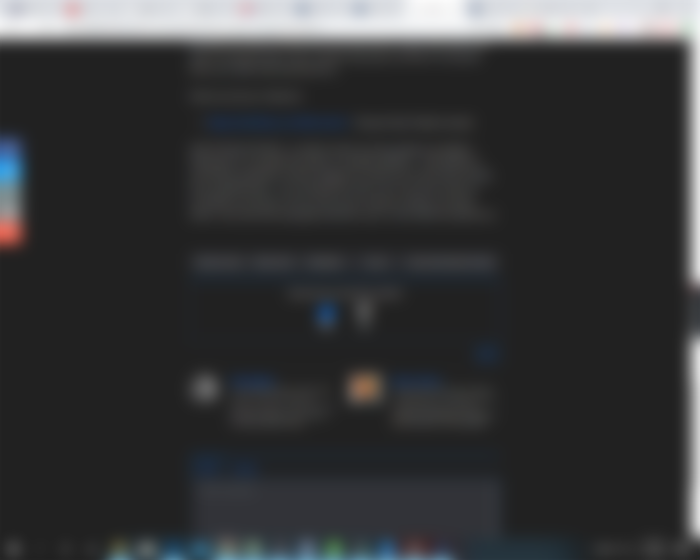First of all, I know that the plagiarism syndication algorithm used here is not Copyscape (TM), but I was running out of space and they actually DO show the writers a Copyscape report, so..
Secondly, I understand that this process is automated, but the automated tool is still something that was, at one point, manually chosen as the tool to use.
The idea for this quick article came to me as I was huffing and puffing about failing the copyright check for an article of mine that I republished.
Oh, I completely understand it, and I'm not going to fight anything to have it verified. I can just rewrite the article in way less time than it would take to challenge such. My issue was that readers who see "Non-Original" on it may immediately think that I am stealing articles, at which point, my reputation would be irreparably harmed and then it's a whole other ballgame.
My thoughts -- read.cash, if things are going to continue like this, perhaps instead of marking "NON-OC," you should just leave it blank and keep the "OC" on the ones that the filter allows. You are attaching legal jeopardy to your company by opening yourselves up to a defamation of character claim.
Understanding Legal Liability and Defamation
So, just by the very nature of what we do here, the applicable laws are the federal Copyright Act and the DMCA, which amended the Copyright Act for the "digital age."
Under these laws, the second someone published something, they are able to assert copyright protection over it. This means that the publisher has full control, at least legally speaking, of where, how, and in what manner it is published.
However, the current state of the read.cash "original content" checking system brings some serious concerns for all of us who publish on this platform.
Defamation, per se

In the situation above, where my article was flagged as being plagiarized syndicated because I republished my own work on the read.cash platform, a brightly-colored notification clearly lets anyone who accesses the article see "NON-OC: Syndicated.... Syndicated or Non-OC.
This immediately indicates to the reader that the article has been stolen or plagiarized copied from someone else.
As a freelance journalist, my reputation for honesty and integrity in my writing supersedes anything else. If my work is stolen, then my readers will not stay readers for very long.
However, in this instance, my work was not stolen. It was my own work, and I can prove that beyond a reasonable doubt.
This means that read.cash's actions in applying a false statement of possible plagiarism syndication to the VERY TOP of my article will have a *detrimental effect on my reputation as a writer, from which I derive close to 65% of my income (thanks to DavidRAllen for catching this one*)
In order to be held civilly liable for an action, that action must be the "proximate cause" of whatever damage the party bring the suit alleges.
So, by their actions of implementing this terrible "originality check," new and long-time readers of my blog now have the thought running through their heads that I am a plagiarism-friendly writer.
This means that I will be looked over for freelance gigs and will likely be put on a master list of plagiarizing journalists, like Pete Buttigieg or Melania Trump (this is said in jest, of course)
Now, just saying that I plagiarized republished a syndicated article is not the problem when it comes to liability. The problem is when that statement is made and it is knowingly false.
For example, once I received notice that my article was flagged as Non-OC, I contacted read.cash and offered overwhelming evidence that the content WAS original.
Their answer was, pretty much, "Sorry, nothing we can do. Live with it."
This means that they were made aware of the error, given an offer to prove that the material was original, and they discarded this and decided to go ahead and leave the offending "NON-OC" label on this article.
Defamation (libel, in this case) is false written statements that cause harm to one's reputation.
By leaving this "non-OC" flag on top of the article for all to see, and then refusing to correct it once evidence of the contrary was proven, read.cash is now knowingly defaming me, and likely many others.
Key word here is "many others," at which case not only one action could be brought, but a large class action suit would be the likely vehicle.
I want to make it clear that I do not intend to sue over this matter. I love this platform, but as a legal professional, it is my duty to inform when I see something going on that could negatively affect a platform upon which I perform professional tasks (write articles). I do not want to see this happen, and it is my hope that those behind read.cash will read this article and realize that there is a very, very simple solution to this problem that does NOT open them to liability, but at the same time, does NOT defame writers in doing so.
The Solution
I fully understand the need to ensure that the platform is not made up of a bunch of stolen material. However, with read.cash being a platform for others to publish, the DMCA exempts them from legal action when others post pirated or copyright-infringed material.
So, the answer here is simple....
Read.cash needs to fully understand the implications of leaving this "NON-OC" tag active.
Here's my proposed solution:
If an article does not pass the "similarity" test, then a notification screen should let the writer know so he can take steps to figure out the problem if the software caught it in error. Read.cash already provides such a screen that is only visible to the writer. This is perfect and should remain.
To fix the issue of defamation, read.cash simply needs to omit the bright orange "NON-OC" statement that appears on articles that fail the test. On the flip side, for the articles that do pass, there's no problem leaving the "OC checkmark" on the byline. This is a simple solution that can be easily fixed and will solve this entire problem.
If It's So Easy, Why Hasn't This Been Implements?
Honestly, I don't know. Perhaps those behind read.cash were unaware that doing this would cause harm to our reputations -- for those of who have had the scarlet letters of plagiarism the syndication warning placed on our ads without reason.
The solution is literally so, so simple; and it does not require read.cash admins to give up the plagiarism syndication detection tool that the
Now, I have read all of the posts from read.cash explaining their reasoning behind using the plagiarism syndication checker in the first place. Once of these articles had a role-played hypothetical scenario where someone who wasn't the author tried to take credit for the author's work by making a similar-looking user ID.
Keep in mind, this didn't actually happen. It's a hypothetical, and it's so flawed in it's logic, here's why....
Option A: Remove the bright orange "NON-OC" tag for articles that don't pass the originality scan. It would be completely fine from my point of view to leave the "OC" tag on for articles that do pass the scan, as those do not degrade those who did not pass the
plagiarismsyndication scanner, overwhelming.Option B: Do nothing and continue marking original content as
plagiarismplagiarism by relying on an algorithm that cannot even differentiate between stolen content and republished content by the same author, which is the case here.The choice is simple. With option A, there are no bright letters reading "NON-OC," which results in zero damage to the author's reputation, meaning that doing this would eliminate the liability exposure that this tool has caused.
It is my hope that the read.cash crew reads this article and fully understand where I am coming from. My hopes are that they will initiate a fix to this thing, whether its scrapping it altogether or just preventing the orange "NON-OC" from the post's screen, which is the sole cause for the damages I have mentioned in the above article
I love this platform and I want to see it grow, so please understand that I write this article with the best of intentions, and those intentions are to stop seeing people from getting penalized and their reputations defamed.
That's all I've got for now. I'd love to read some comments below.
UPDATE: My article inadvertently caused a "flame war" (not my characterization) between myself and the owners of the platform.
I wanted to offer some sort of irrefutable proof that even "syndication" is not an appropriate characterization, since syndication is defined as "
the transfer of something for control or management by a group of individuals or organizations
Which is not what is taking place here, at all.
So, how shall I do that, I thought?

Ahh, that should do it.
If you're not certain what the above screenshot represents, please read the "NOTE FROM AUTHOR" section that I have published at the end of my version of this article on that platform.
If you think that I have manipulated the image into saying that, well....
https://www.publish0x.com/better-call-paul/bitconnect-a-classic-cryptoscam-xlodom
.....there's the URL.
Peace.
UPDATE: Read.cash, after receiving complaints regarding the Non-OC tag from way more users that just me, have published an article explaining that they will implement the suggestions made in this article -- that is, they will be removing the "non-OC" tag from articles that don't pass, but will leave the OC and checkmark on articles that do pass.
I commend them for making these changes, and for being fluid enough to listen to the views of others. Great job, guys!


This nearly cause a war and I was missing it 😂. Removing the Non-OC is the more elegant solution indeed. On the other hand the OC label is a bonus for your readers to see a post is originally written for Read.cash